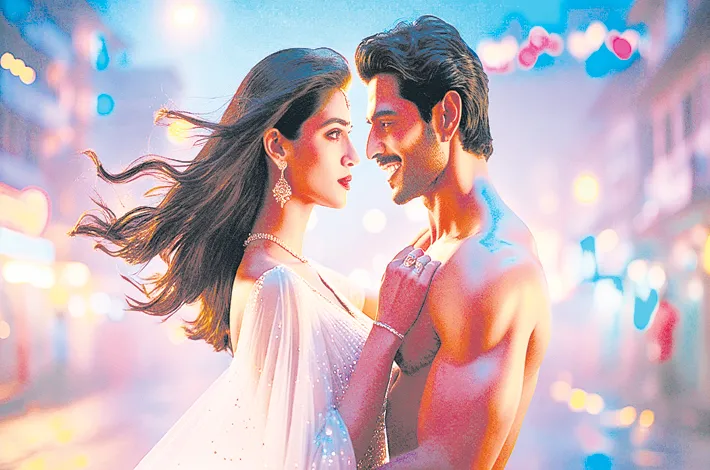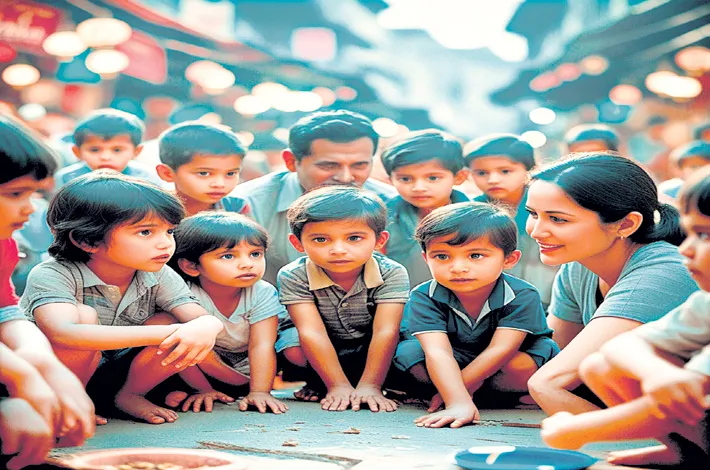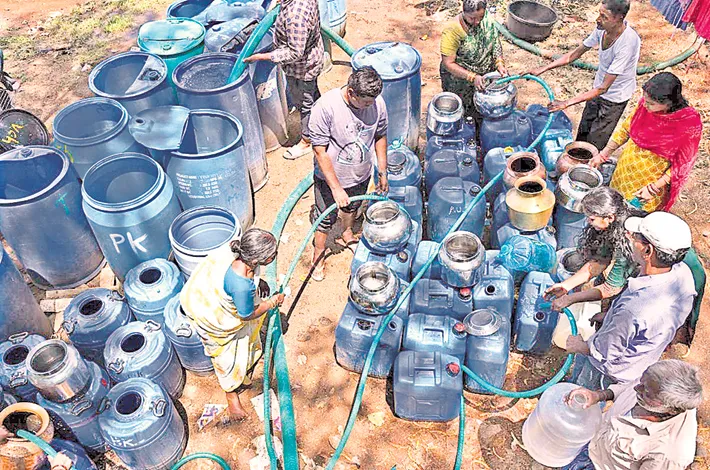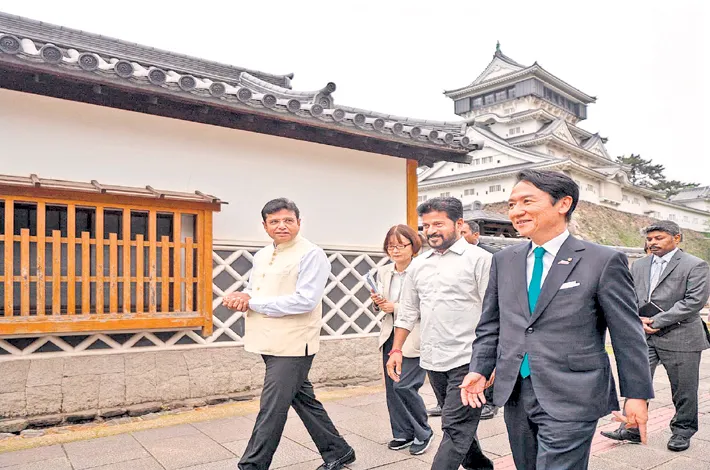The Case of the Vanishing Veena
21-04-2025 12:00:00 AM
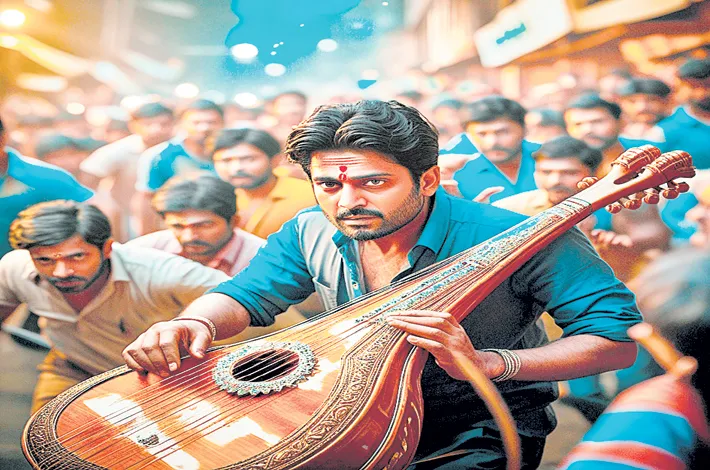
Ajit returned with news: a pawnbroker in Burrabazar had heard whispers of a rare veena being offered in the black market, handled by a man with a scar. Byomkesh’s suspicions crystallized. He instructed Ajit to keep watch on the pawnbroker while he paid a visit to the Howrah riverbanks
Kolkata, 1948. The monsoon rains battered the city, turning narrow alleys into rivers of mud. Byomkesh Bakshi sat in his modest flat on Harrison Road, puffing on his pipe, the air thick with the scent of tobacco and damp earth. His friend and chronicler, Ajit Banerjee, lounged on a wicker chair, flipping through a dog-eared copy of Anandabazar Patrika. The room was dimly lit, the flicker of an oil lamp casting shadows on the walls.
A sharp knock broke the silence. Byomkesh raised an eyebrow, setting his pipe down. Ajit opened the door to reveal a drenched figure—a woman in her late thirties, her sari clinging to her frame, her eyes wide with fear. She introduced herself as Malati Devi, a renowned veena player from Shyambazar.
“My veena,” she gasped, clutching a sodden shawl. “It’s gone. Stolen. And with it, my life.”
Byomkesh gestured for her to sit. “Tell me everything,” he said, his voice calm but commanding.
Malati explained that her veena, an heirloom crafted over a century ago, was no ordinary instrument. Its rosewood body was inlaid with ivory, and its sound was said to mesmerize listeners. She had performed with it at a private concert the previous night at the mansion of Pratap Chandra, a wealthy businessman with a penchant for the arts. After the performance, she’d left the veena in a locked room provided by Pratap. This morning, the room was still locked—but the veena was gone.
“Any enemies?” Byomkesh asked, leaning forward.
Malati hesitated. “None I know of. But… there were strange men at the concert. They watched me too closely.”
Byomkesh’s eyes gleamed. “Ajit, fetch my coat. We’re going to Shyambazar.”
The rain had eased to a drizzle by the time they reached Pratap Chandra’s sprawling mansion. The businessman, a stout man with a handlebar mustache, greeted them with forced hospitality. “A theft? In my home? Preposterous!” he blustered, leading them to the room where the veena had been kept. The door was heavy, the lock intact. Inside, the room was bare save for a velvet-lined case—empty.
Byomkesh examined the lock, his fingers tracing its edges. “No scratches. No signs of tampering.” He knelt, inspecting the floor. A faint smudge of red clay caught his eye, barely noticeable against the polished wood. “Curious,” he murmured, pocketing a sample.
Pratap claimed ignorance, insisting his staff was loyal. Byomkesh requested to interview them. The cook, a nervous man named Gopal, mentioned seeing a stranger lingering near the mansion’s rear gate the night of the concert—a man with a scar across his cheek. The description matched no one on the guest list.
As they left, Byomkesh’s gaze lingered on the mansion’s high walls. “Ajit, that clay—it’s not from here. It’s from the riverbanks, likely near Howrah. We’re dealing with someone who travels.”
Back at Harrison Road, Byomkesh sent Ajit to scour the city’s pawnshops and music dens for any trace of the veena. Meanwhile, he visited Malati’s modest home, where she lived alone. Her distress was genuine, but Byomkesh noted her reluctance to discuss her past. “Who else knew the veena’s value?” he pressed.
She admitted that her estranged brother, Arun, a gambler with debts, had once tried to sell the instrument. “But he’s in Bombay,” she insisted. Byomkesh’s lips twitched into a faint smile. “We’ll see.”
Ajit returned with news: a pawnbroker in Burrabazar had heard whispers of a rare veena being offered in the black market, handled by a man with a scar. Byomkesh’s suspicions crystallized. He instructed Ajit to keep watch on the pawnbroker while he paid a visit to the Howrah riverbanks.
Under the shadow of the Howrah Bridge, Byomkesh found a slum where the red clay was plentiful. Asking discreet questions, he learned of a local thug, Shyamal, known for his scarred face and shady dealings. Shyamal operated from a derelict warehouse, a hub for stolen goods. Byomkesh, disguised in a tattered kurta, infiltrated the warehouse that night.
In a dimly lit corner, he spotted it—the veena, its ivory inlays glinting. Before he could act, a figure emerged from the shadows: Arun, Malati’s brother, his face pale with desperation. “You shouldn’t be here,” Arun hissed, clutching a knife.
Byomkesh remained unfazed. “You stole it for your debts, didn’t you? Shyamal was your buyer.”
Arun lunged, but Byomkesh sidestepped, disarming him with a swift motion. Shyamal’s men appeared, but a whistle from outside signaled Ajit’s arrival with the police. Chaos erupted, and in the melee, Byomkesh secured the veena.
Back at Harrison Road, Malati wept with relief as Byomkesh returned her instrument. Arun, now in custody, confessed to stealing the veena, driven by creditors’ threats. Shyamal had been his contact in Kolkata’s underworld. Pratap Chandra, though not directly involved, had unknowingly hosted a guest—Arun—who’d used the concert as cover.
As Malati left, Byomkesh lit his pipe, the case closed. “Ajit,” he said, exhaling a plume of smoke, “truth is like a veena’s strings—pluck carefully, and it sings.”





